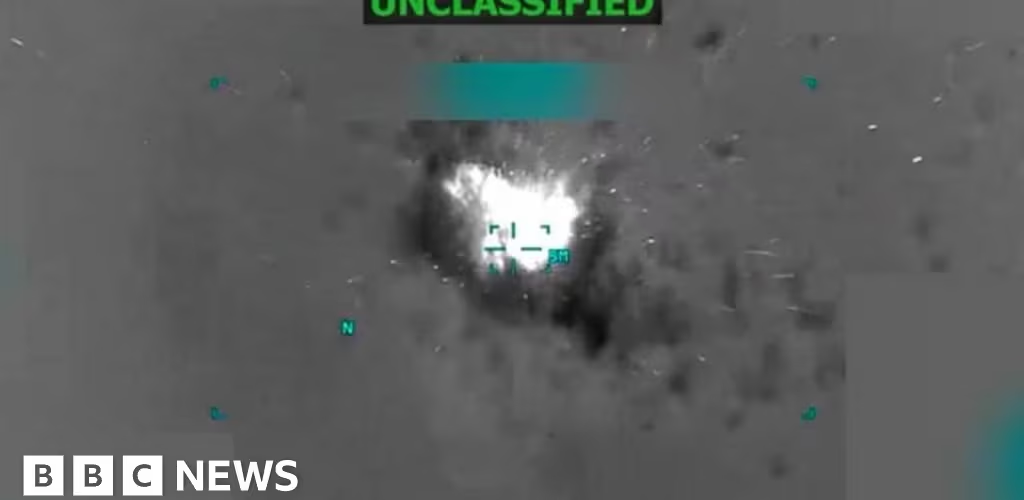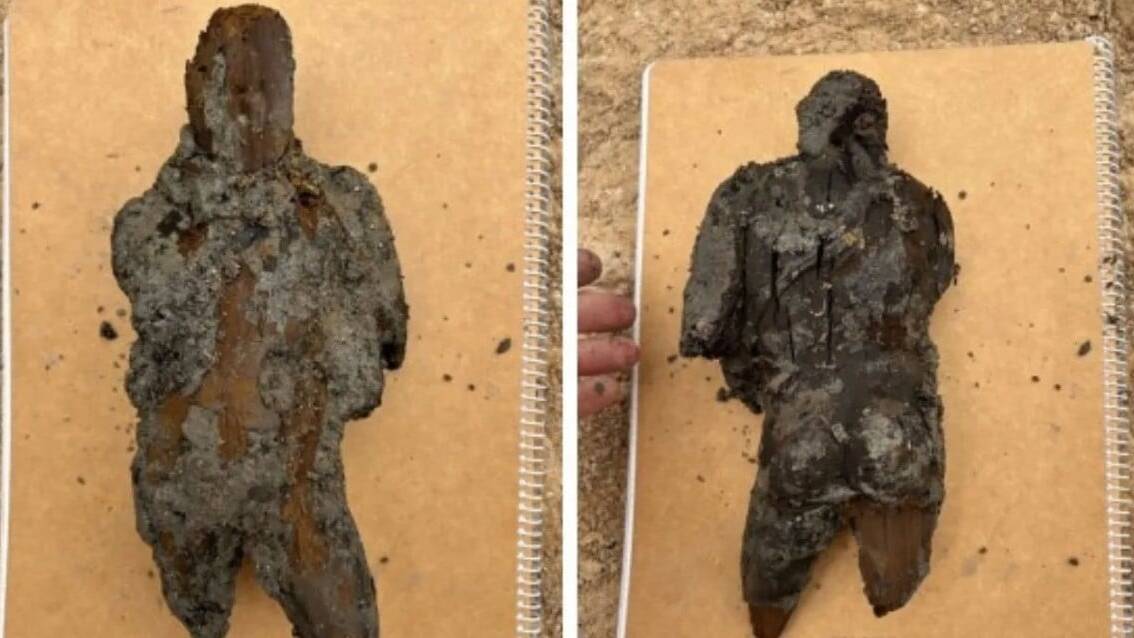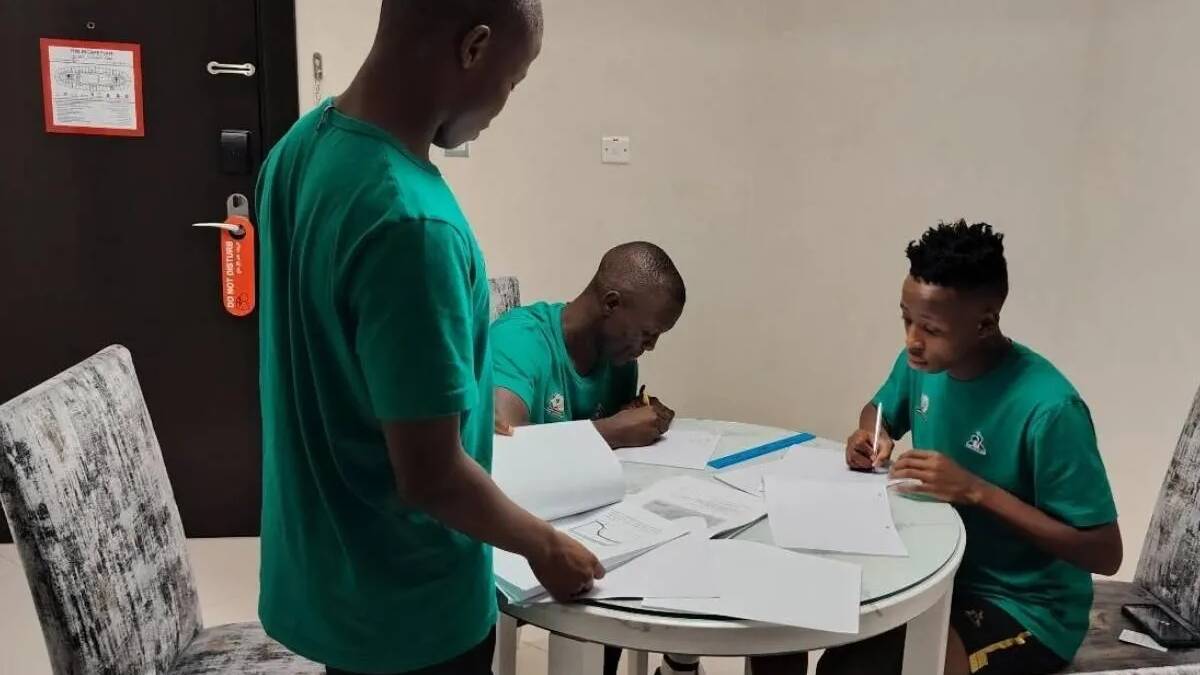What does Trump want with boat strike campaign?
BBC | 15.11.2025 02:35
US airstrikes against alleged drug boats in the Caribbean and eastern Pacific have continued unabated since early September - a deadly campaign now dubbed Operation Southern Spear.
Tens of thousands of troops and substantial air and naval assets have been deployed to the region, collectively forming the largest US military presence in and around Latin America in decades.
The Trump administration argues that the strikes are necessary to stem the flow of drugs to the US.
They have, however, been controversial and sparked fears of a wider conflict in the region.
Here is what we know.
Why is the US conducting strikes?
President Trump and members of his administration have justified the strikes as a necessary counter-drug measure to stem the flow of narcotics from Latin America to US streets.
In a statement, defence secretary Pete Hegseth said that the campaign - which on 13 November was officially named Operation Southern Spear - is aimed at removing "narco-terrorists from our hemisphere" and securing the US from "the drugs that are killing our people".
But little information about the targets or what drug trafficking organisations they allegedly belonged to has been officially released by the Pentagon.
In at least a few cases, Hegseth and several other officials have claimed that the targets were tied to Tren de Aragua, a Venezuelan gang designated as a foreign terrorist organisation by the Trump administration at the start of the year.
It is unclear how much of an impact US officials believe that the strikes are having on the wider flow of drugs, a significant portion of which cross the land border between Mexico and the US.
How many strikes have there been?
Between 2 September and 13 November, US forces hit at least 21 vessels in 20 separate strikes in international waters, both in the Caribbean and in the eastern Pacific.
The majority of these strikes have taken place off the coasts of Venezuela and Colombia.
Collectively, at least 80 people have been killed.
While US forces have not publicly identified them, they have all been alleged to be "narco-terrorists".
One investigation, from the Associated Press, reported that several Venezuelan nationals killed in the strikes were low-level traffickers driven by poverty to a life of crime, as well as at least one local crime boss.
Are these boat strikes legal?
The Trump administration has insisted that the strikes are legal, justifying them as a necessary self-defence measure aimed at saving American lives.
In a confidential note to Congress, the administration argued that the US is engaged in an armed conflict with drug cartels who are "unlawful combatants" and whose actions - drug trafficking - "constitute an armed attack against the United States".
But some legal experts have said strikes could be illegal and violate international law by targeting civilians, with no due process afforded to the suspects.
Luis Moreno Ocampo, a former chief prosecutor at the International Criminal Court (ICC), told the BBC that he believes that the strikes could be treated as crimes against humanity.
Critics have also questioned whether the White House complied with US law in initially authorising the strikes.
According to the US constitution, only Congress is able to declare war.
In October, President Trump said the US is "allowed" to strike vessels near Venezuela, but that his administration "may go back to Congress" if the campaign was expanded to include targets on land.
"We don't have to do that," he said. "But I think...I'd like to do that."
Is the US preparing to attack Venezuela?
As part of the operation, the US has deployed substantial strike power in the Caribbean and western Atlantic within striking distance of Venezuela.
This force includes the USS Gerald R Ford aircraft carrier, as well as a range of guided missile destroyers and amphibious assault ships capable of landing thousands of troops.
Additionally, US combat aircraft have been deployed to bases in Puerto Rico, and US long-range bombers have flown within striking distance of Venezuela's coastline.
Trump has also acknowledged that he authorised the CIA to conduct covert action in Venezuela, although the scope of what that could mean remains highly classified.
This build-up has prompted concerns that the US is preparing to directly target Venezuela, or potentially try to topple the left-wing socialist government of Nicolas Maduro.
On 3 November, Trump downplayed the possibility of a war with Venezuela, but suggested that he believed Maduro's days as the country's president were numbered.
Asked if the US was going to war against Venezuela, the US president told CBS' 60 Minutes: "I doubt it."
"I don't think so," he added. "But they've been treating us very badly."
How has Maduro responded?
The Maduro government has accused the US of stoking tensions in the region, with the aim of toppling the government.
In response, the Venezuelan military have announced readiness exercises and in November declared a "massive mobilisation" of troops, which saw 200,000 personnel sent across the country.
Maduro has cautioned against the US becoming involved in Venezuela, and called for peace.
"No more forever wars. No more unjust wars. No more Libya. No more Afghanistan," Maduro said on CNN on 13 November. "Long live peace."









